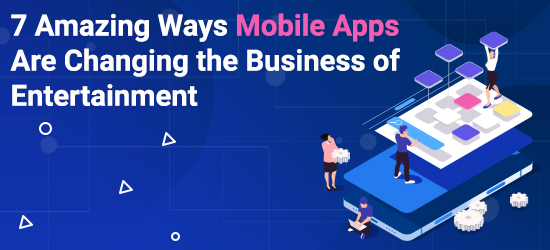The Top Programming Languages Every Mobile App Developer Should Know in 2025

The mobile app development landscape is constantly evolving. With advancements in technology, platforms, and user expectations, mobile app developers must adapt and keep their skill sets current to remain competitive. As we approach 2025, the demand for mobile apps continues to skyrocket, making it essential for developers to be proficient in the right programming languages. Whether you’re looking to hire mobile app developers or are a developer aiming to boost your career prospects, understanding the key programming languages is crucial. In this article, we’ll explore the top programming languages every mobile app developer should know in 2025.
Swift
Swift is Apple’s official programming language for iOS development. It was introduced in 2014 and has rapidly become one of the most popular languages for building iOS applications. As of 2025, Swift is expected to continue dominating the iOS development ecosystem due to its speed, efficiency, and safety features. Swift’s syntax is easy to learn, making it ideal for new developers. The language is also highly supported by Apple, meaning regular updates and improvements, keeping it future-proof. If you are looking to hire mobile app developers for an iOS project, Swift expertise will be a key consideration.
Why Choose Swift?
- Speed and performance optimization.
- Apple’s strong ecosystem, with integrated tools like Xcode.
- Open-source nature allowing for community contributions.
Kotlin
Kotlin has emerged as the preferred programming language for Android development. Although Java is still widely used, Google officially announced Kotlin as the primary language for Android app development in 2017. As Android dominates the mobile operating system market, Kotlin’s popularity is only expected to increase in 2025. Kotlin is designed to be fully interoperable with Java, but it offers a more modern, concise, and safer syntax, which helps reduce the likelihood of errors. It’s a great choice for building feature-rich Android apps, and Kotlin’s popularity means that you will find many qualified developers to hire.
Why Choose Kotlin?
- Interoperability with Java code.
- Enhanced safety features that minimize runtime errors.
- Active community and support from Google.
JavaScript (React Native and Vue.js)
JavaScript has long been a pillar of web development, but its role in mobile app development is expanding rapidly, particularly with frameworks like React Native and Vue.js. React Native, in particular, has gained massive traction for building cross-platform mobile applications. Developers can write a single codebase in JavaScript that works for both iOS and Android, saving time and resources. React Native is backed by Facebook, while Vue.js has seen increasing popularity for its flexibility and simplicity. JavaScript’s versatility and wide adoption make it an essential language for mobile app developers, especially those focusing on cross-platform development.
Why Choose JavaScript?
- Build cross-platform apps using frameworks like React Native.
- Large community, abundant libraries, and tools.
- Shorter development cycles and faster time to market.
Dart (Flutter)
Flutter, Google’s UI toolkit for building natively compiled applications, uses Dart as its programming language. Dart, though not as widely known as other languages, has seen rapid growth in the mobile app development world due to the efficiency and speed of the Flutter framework. With Flutter’s ability to deliver a single codebase for both Android and iOS platforms, developers can create beautiful, high-performance apps in a fraction of the time. As Flutter continues to evolve, developers who learn Dart are well-positioned for the future of mobile app development.
Why Choose Dart?
- High-performance native apps using a single codebase.
- Growing support and community, backed by Google.
- A rich set of pre-built widgets and tools for UI design.
Python
Python is renowned for its simplicity and ease of use, which makes it a popular language for beginners. While Python isn’t typically used for native mobile app development, it has a growing presence in mobile app development through frameworks like Kivy and BeeWare. Python is often used for back-end development, APIs, or machine learning integration in mobile apps. For developers looking to integrate advanced features like AI, data processing, or automated tasks, Python is a valuable language to know.
Why Choose Python?
- Excellent for back-end and server-side development.
- Integration with machine learning and AI frameworks.
- Extensive libraries and frameworks for mobile app development.
C# (Xamarin)
C# is a versatile language that can be used across platforms, including for mobile app development using Xamarin. Xamarin is a Microsoft-backed framework for building cross-platform apps. It allows developers to write apps that run on both iOS and Android from a single codebase. For businesses already using Microsoft technologies or looking to hire mobile app developers who are proficient in C#, Xamarin is a strong contender for building enterprise-level applications.
Why Choose C#?
- Strong integration with Microsoft’s .NET ecosystem.
- Cross-platform development with Xamarin.
- Strong performance and access to native APIs.
Ruby
While Ruby might not be as mainstream for mobile development as some of the other languages on this list, its simplicity and productivity benefits should not be overlooked. Ruby, through frameworks like RubyMotion, allows developers to build native iOS and Android apps. Ruby is a high-level language with a syntax designed for simplicity, which can speed up the development process. It’s particularly useful for startups and smaller teams looking to build mobile apps quickly and efficiently.
Why Choose Ruby?
- Rapid development cycles with concise code.
- Ideal for startups and small teams.
- Ability to build native apps with RubyMotion.
C++
C++ is one of the oldest and most powerful programming languages in existence, and its role in mobile app development is particularly important when performance is crucial. C++ is commonly used for developing high-performance games or apps that require complex algorithms. While it’s not typically used for general mobile app development, knowing C++ can give developers an edge when building apps that demand optimized performance.
Why Choose C++?
- High-performance capabilities.
- Often used for game development and high-performance apps.
- Rich libraries and support for various platforms.
Conclusion: Choosing the Right Language for Your Project
As the mobile app development landscape evolves, the choice of programming language can significantly impact the success of an app. Developers should keep up with emerging technologies and trends while choosing the language that aligns best with their project goals, platform preferences, and performance requirements.
If you’re looking to hire mobile app developers from India, especially for cutting-edge technologies or cross-platform solutions, it’s worth considering professionals proficient in languages like Swift, Kotlin, JavaScript (React Native), and Dart (Flutter). In particular, hiring mobile app developers from India has become a popular choice for many businesses due to the country’s large pool of skilled developers, cost-effectiveness, and high-quality app development services.
By hiring mobile app developers from India, you can ensure that your app is built with the latest technologies and trends in mind, and you can benefit from a skilled, experienced workforce that can meet your development needs for 2025 and beyond.




